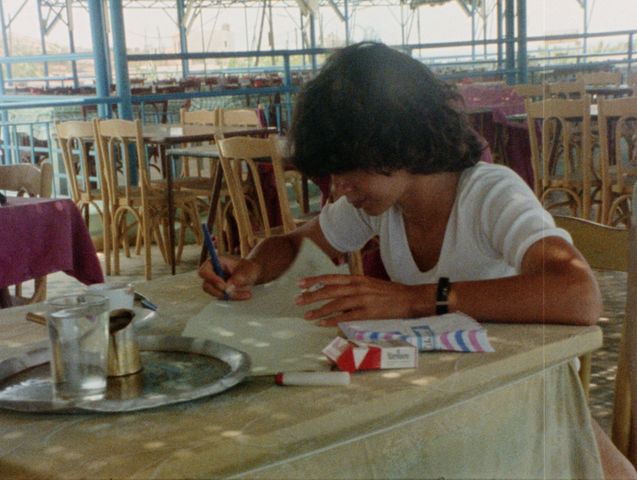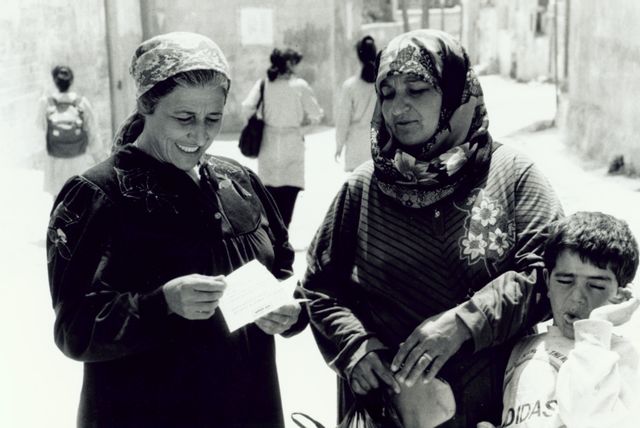Cinema
Lettre de Beyrouth | The Women Next Door
Mon, Jun 20–Mon, Aug 22, 2022
Every Monday
5.45 pm
Free admission

Lettre de Beyrouth (Letter from Beirut)
D: Jocelyne Saab, France / Lebanon, 1978, 48 min, Arabic/French/English OV with English subtitles
Lettre de Beyrouth is, in the words of researcher Rasha Salti, “a mosaic of encounters and observations.” The second film of Jocelyne Saab’s Beirut trilogy, it was shot three years after the beginning of Lebanon’s Civil War during a period of uncertain calm. Accompanied by a voice-over authored by the late poet, essayist, and artist Etel Adnan, Saab enters homes, rides buses across a divided city, and drives through checkpoints, attempting to make sense of what surrounds her. As Salti notes, “The increasing prohibitions on freedom of movement across the city and the country thread through the film. The checkpoints are the obvious physical incarnation of these restrictions, but the widening rifts of perception between communities is the more bitter reality she wanted to capture.”

The Women Next Door
D: Michal Aviad, Israel / Palestine 1992, 84 min, Hebrew/Arabic/English OV with English subtitles
Michal Aviad had been living in the United States for a decade when the First Intifada broke out in December 1987. She returned to Israel to make a film about the conflict, setting off in a car from Jerusalem, crossing numerous checkpoints with two other women: Yvonne Miklosh, an Israeli cinematographer, and Buthina Khoury, a Palestinian assistant director. As Aviad recounts in voice-over at the beginning of the film, the goal of the journey was “meeting women, mostly women. Israeli women and Palestinian women. Mothers and nonmothers. Women under the occupation and alongside it. Women from their side, women from my side. But what exactly is my side?” In The Women Next Door, any binary understanding of the occupation splinters into a pluralistic field of positions. Aviad explores whether gender might provide a ground for solidarity, but equally underlines the disparities of women’s experiences and the fact that declarations of feminism are no guarantee of a global commitment to justice.